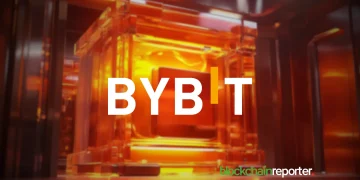In an unprecedented move, the European Parliament has made history by approving a comprehensive set of crypto laws and licensing rules, a major milestone that signals the growing importance of the crypto industry for the region’s economic growth. This robust decision can potentially reshape the European financial landscape, as it recognizes the need for a robust regulatory framework to support the thriving crypto sector.
Europe Gives Regulatory Clarity To The Crypto Industry
On Thursday, European lawmakers made a historic decision by granting their final approval to an ambitious law that will introduce the European Union’s first comprehensive rules to govern the rapidly evolving crypto industry. The adoption of the EU’s Markets in Cryptoassets (MiCA) regulation marks the first attempt by governments to supervise the burgeoning sector on such a large scale following the collapse of several major players, including the crypto exchange FTX.
European Financial Services Commissioner Mairead McGuinness announced that the legislation is expected to come into force in July after receiving formal approval from the bloc’s 27 member states. The specific requirements outlined in the regulation will be implemented progressively, with rules concerning stablecoins, for example, set to apply from July 2024.
The European Parliament voted overwhelmingly in favor of a specific law called the Transfer of Funds regulation, with 529 votes in support, 29 against, and 14 abstentions. This regulation mandates that crypto operators identify their customers as part of an effort to combat money laundering.
EU Is Set To Become A Crypto-Regulated Zone
After three years in development, the MiCA legislation has been positively received by crypto executives who see it as a more favorable alternative to the US approach, which relies heavily on enforcement actions to regulate the industry. However, some critics argue that the law is already outdated before it even comes into effect, as it may not have prevented some of crypto’s recent high-profile collapses. Consequently, there are already calls for updates to ensure the legislation remains relevant and effective in addressing the sector’s evolving challenges.
The final approval has been described as heralding the beginning of a new era of regulatory scrutiny on previously unregulated crypto markets, which have led to significant losses for many first-time investors and served as a safe haven for fraudsters and criminal organizations for more than a decade, according to Ernest Urtasun, the shadow representative on MiCA and a parliament member for the Greens. However, he also pointed out that several significant regulatory challenges remain unaddressed, necessitating urgent legislative actions to complement MiCA with the missing pieces.
Upon implementation, MiCA will mandate that companies providing crypto-related services in the EU obtain registration in one of the member states, which would then permit them to operate throughout the entire bloc. The European Banking Authority and the European Securities and Markets Authority will be responsible for ensuring that crypto platforms adhere to the regulations, including maintaining sufficient risk management and governance processes to prevent a collapse similar to the FTX incident.
McGuinness, the commissioner of Financial Services, said, “We are putting safeguards in place that would prevent companies active on the EU market from engaging in some of the practices that led certain cryptoasset operators to collapse. As we have seen in recent months, stringent rules and supervision are very much needed because we’ve had the collapse of projects such as FTX, Terra Luna, Celsius, and Voyager.”
MiCA does not cover crypto lending, decentralized finance, or non-fungible tokens, prompting prominent figures like European Central Bank chief Christine Lagarde to call for a MiCA 2.
Crypto companies have raised concerns about MiCA’s regulation of stablecoins—digital tokens that strive to maintain a one-to-one value with a more stable asset, such as the US dollar. Under MiCA, operators must maintain local reserves and face trading restrictions on non-euro-denominated tokens that lack fiat currency backing.
Overall, crypto executives believe having some guidance is preferable to none. The recent US strategy of prioritizing enforcement action against major players rather than advancing industry-specific legislation has prompted well-known companies like Coinbase, Circle, and Binance to expand their presence in Europe. Coinbase CEO Brian Armstrong even stated on Tuesday that “anything is on the table” regarding the company’s future operational footprint.























